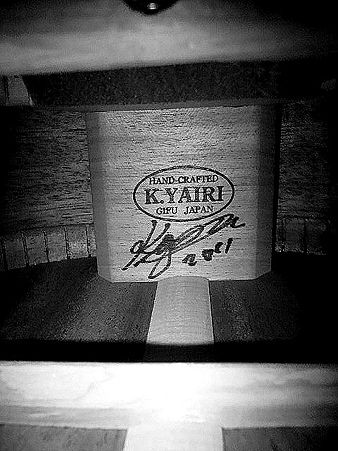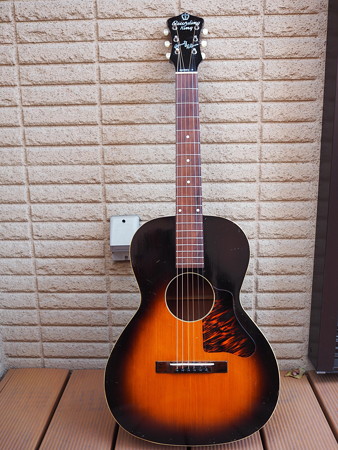×
[PR]上記の広告は3ヶ月以上新規記事投稿のないブログに表示されています。新しい記事を書く事で広告が消えます。

[PR]上記の広告は3ヶ月以上新規記事投稿のないブログに表示されています。新しい記事を書く事で広告が消えます。
Tommy Johnson recorded this song in 1928.楽しそう。
The words must be understood in the context of the Prohibition. With the sale of liquor outlawed, many men like Johnson, who were accustomed to drinking, turned to cheap and still legal substitutes - more or less anything that contained alcohol. Sterno, a cooking fuel called "canned heat", was one of the most common of these substances. How many people it killed or crippled with the 'jake leg' we may never know, but these unexpected side effects of the 'Great Experiment' were felt most severely by blacks, who clould not affordto buy the more expensive bootleg liquor, particularly during the Depression when there was mass unemployment. Although the Prohibition amendment was repealed not long after Johnson's song was recorded, its effects continued to be felt in Mississippi. Archaic members of that state's legislature voted to keep Mississippi dry. Thus Tommy Johnson and many others were faced with the problem of ruined health throughout their lives (source : "Tommy Johnson" by David Evans - Studio Vista Books 1971)
His brother Mager told writer David Evans :
He believed in drinking. He loved that canned heat. He's the first fellow I ever heard tell of drinking canned heat. And he drank so much of it, he said he was going to put him out a record about the canned heat. That canned heat, you know, it was red. It was in those little okd cans. When you open it, take the top off the can. He'd strike hem a match and burn it, burn the top of it. And he'd put it in a rag and strain it. It's got juice in it. Squeeze the juice out of it into a glass. Ant then get him some sugar and put it i there. And then some water. And there he'd go...
The lp with orange cover called 'The Legacy of Tommy Johnson' illustrates above mentioned book. It features songs by Mager Johnson, Tommy's brother and many friends who were influenced by his style of playing and singing.
I'm playing a 1927 Handkraft Supertone in dropped D tuning
I did a four part lesson on this song; here's the link to the first lesson :
http://www.youtube.com/watch?v=ageQJ2...
You can download the tab at my website
http://www.daddystovepipe.com
I also did an elaborate instrumental version here
http://www.youtube.com/watch?v=1crvaH...
Check out my new cd available at Youtune Records
http://www.youtunerecords.com/daddyst...
Welcome to da Boom Boom Room!THE GRAND GRAND DADDY OF DA BLUES!Blasting out his famous number Boom Boom here on the BBC in the early and swinging sixties!Weapon of choice here...an unidentifiable Epiphone archtop that bears an uncanny resemblance with the modern day Epi Broadway...RIP John!応援ポチっ頼んます。だあけみ
Last Fair Deal Gone Down " (1936, San Antonio)応援ポチっ頼んます。だあけみ
ROBERT JOHNSON
EARLY COUNTRY BLUES
Alger "Texas" Alexander
Pink Anderson
Barbecue Bob Hicks
Scrapper Blackwell
Black Ace
Blind Blake
Big Bill Broonzy
Richard "Rabbit" Brown
Willie Brown
Bumble Bee Slim
Gus Cannon
Bo Carter
Sam Collins
Floyd Council
Ida Cox (1896-1967)
Gary Davis (1896-1972)
Sleepy John Estes (1904-1977)
Blind Boy Fuller (1908-1941)
Jesse Fuller (1896-1976)
Billy Garland (1918-1960)
Jazz Gillum (1904-1966)
Shirley Griffith (1908-1974)
Arvella Gray (1906-1980)
Smokey Hogg (1914-1960)
Lightnin' Hopkins (1912-1982)
Son House (c. 1902-1988)
Peg Leg Howell (1888-1966)
Alberta Hunter (1895-1984)
Mississippi John Hurt (c. 1893-1966)
Jim Jackson (c. 1884-1937)
John Jackson
Skip James (1902-1969)
Blind Lemon Jefferson (1893-1929)
Blind Willie Johnson (1897-1945)
Lonnie Johnson (1894-1970)
Robert Johnson (1911-1938)
Tommy Johnson (1896-1956)
Huddie William "Lead Belly" Ledbetter (c. 1889-1949)
Furry Lewis (1899-1981)
Mance Lipscomb (1895-1976)
Cripple Clarence Lofton (1887-1957)
Robert Lockwood, Jr. (1915-2006)
Mississippi Fred McDowell (1904-1972)
Brownie McGhee (1915-1996)
Blind Willie McTell (1901-1959)
The Memphis Jug Band
Big Maceo Merriweather (1905-1953)
Eugene "Buddy" Moss (c. 1914-1984)
Memphis Minnie (1897-1973)
Charlie Patton (1891-1934)
Piano Red (1911-1985)
Ma Rainey (1886-1939)
Tampa Red (1904-1981)
Bessie Smith (1894-1937)
Victoria Spivey (1908-1976)
Frank Stokes (c. 1888-1955)
Sonny Terry (1911-1986)
Henry Townsend (1909-2006)
Sippie Wallace (1898-1986)
Washboard Sam (1910-1966)
Curley Weaver (1906-1962)
Peetie Wheatstraw (1902-1941)
Bukka White (1909-1977)
Josh White (1914 or 1915-1969)
Sonny Boy Williamson I (1914-1948)
Super Jumbos * Gibson SJ-100 * Gibson SJ-150 Maple * Gibson SJ-200 * Gibson SJ-200 EC * Gibson SJ-300
Small Bodies * Gibson Blues King * Gibson CJ-165 Maple * Gibson CJ-165 Rosewood * Gibson LC-1 * Gibson LC-2
In rare footage from 1970, all-round folk blues entertainer John Jackson performs "That Will Never Happen No More." From the DVD "John Jackson: The Video Collection 1970-1999." More info at http://www.guitarvideos.com/products/vestapol-dvds/john-jackson-the-video-collection-1970-1999かわいいオッチャン。
Kelly Joe Phelps at the Artiste Sanctuary Concert Series at St. Jude's in Cedar City, UT応援ポチっ頼んます。だあけみ
05/12/12
http://www.kellyjoephelps.net/
It's as thin as the edge of a razor, the road separating Heaven from Hell, sin from salvation, redemption from despair. It's a lonely road to go down and like the old gospel says, you've got to walk it for yourself. Kelly Joe Phelps has been doing lot of soul searching since his last record, 'Western Bell' came out in 2009. Three years later, his journey has wound its way to a recording studio in Vancouver, and Kelly Joe has once again beaten a path to Steve Dawson's door with a new batch of songs tucked into his satchel that reflect both the new insights gained along the journey as well as things that have been dropped by the wayside. Together Phelps and the veteran producer embarked on a three day recording odyssey that marked their fourth collaboration since Dawson played slide on 'Slingshot Professionals', produced 'Tunesmith Retrofit' and released 'Western Bell after it proved too daring for Rounder Records. The result is 'Brother Sinner and the Whale', a record that may very well come to be recognized as the best of an already very impressive body of work.
Since his debut album 'Lead Me On', came out in 1994, the Pacific Northwest based singer and songwriter has written and performed some of the most compelling slide guitar based music ever recorded. Though he spent his early years playing free jazz, he has never strayed too far from the roots music world that has become his passion. "I'd spent all this time learning improvisational music, but I'd always had an attraction to folk based music forms. So, I was listening to a lot of Chet Atkins, Merle Travis and some of the newer people like Leo Kottke and John Fahey. My music is a reflection of all the music I loved and steeped myself in. There's a space and openness in rural music that makes sense to me." Playing a lap slide in a style that both evoked the sounds of the ancients and pointed towards new possibilities for the instrument, Kelly Joe's music seemed to originate in another time as he sang with the voice of an old soul, weary with experience, yet excited with all of the prospects that life brings.
After several years of exhaustively exploring the potential of his slide, Phelps' attention gradually shifted from instrumental virtuosity towards an emphasis on songwriting. "I wanted to keep moving forward, so I began to spend more effort thinking about my songs and not so much about the guitar because ultimately, I got bored with it because I felt that I had found all I could for myself within that sound. So, the work felt finished to me."
Phelps' inquisitive mind and restless spirit have always carried him forward to new forms of expression, but experimentation is not without its costs. When 'Western Bell' baffled his record company, puzzled some fans and failed to create new audiences for his work, Phelps pulled back from recording to search for a new direction. Unexpectedly, inspiration came through a re-¬examination of his Christian roots, and resulted in an unexpected flurry of creative activity that gave birth to a whole new set of songs and a reinvigorated approach to playing the guitar as Phelps opted to play bottleneck rather than his customary lap slide to achieve a sound that wouldn't have been out of place on a classic John Fahey or Reverend Gary David record.
With song titles like 'Talking to Jehovah', 'I've been Converted' and 'The Holy Spirit Flood', there's no escaping that something has grown and changed in Kelly Joe's world. Phelps' lyrics fuse poetry from the Book of Jonah and the vintage gospel blues of Mississippi John Hurt with aspects of the early gospel work of Bill and Charlie Monroe thrown in for good measure to create what surely must be the most literary gospel songs recorded since Bob Dylan's incendiary Christian albums came out three decades ago.
Here's Ry Cooder with the Blind Blake classic in an outtake from the Rockpallast show recorded at the Markhalle, Hamburg in 1977. Ry (typically) wasn't at all pleased with the sound for that show and gives vent in the lead up to this clip. (I've edited out the expletives for family viewing.) The lighting wasn't up to much, either - and don't mention the spelling. But the boy sure can play... For the benefit of Mr Dik and his cronies, this was another attic find. Let's hope I find some more... I believe Alimony, He'll Have To Go, Mexican Divorce, Crow Black Chicken and Smack Dab In The Middle were also edited out of the broadcast show. If anyone has any of these could they please let me know. www.rycooderstuff.co.ukあぁ、






